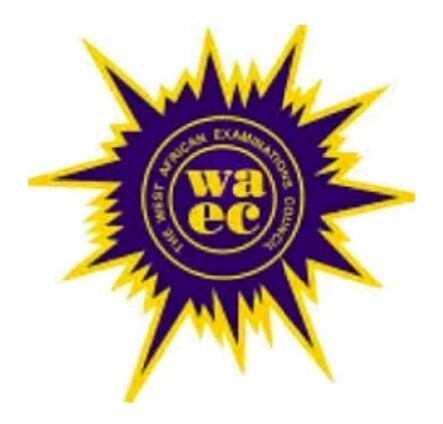Studying for your WAEC examination is a crucial step towards achieving success.
When it comes to the Literature in English subject, the WAEC syllabus serves as your roadmap.
It outlines the aims, objectives, and the format of the exam, providing valuable guidance for your preparation.
In this blog post, we will explore the syllabus, recommended textbooks, and the examination scheme to help you effectively prepare for the Literature in English exam.
Literature in English Syllabus:
The WAEC Literature in English syllabus is your key to understanding the topics you need to cover.
It categorizes the subject into different sections and provides recommended textbooks for each category. Let’s take a look at the syllabus and the corresponding textbooks:
- African Prose:
- “Second Class Citizen” by Buchi Emecheta
- “Unexpected Joy” by Alex Agyei-Agyiri (2018 Edition)
- Non-African Prose:
- “Invisible Man” by Ralph Ellison
- “Wuthering Heights” by Emily Bronte
- Shakespearean Text:
- “A Midsummer Night’s Dream”
- African Drama:
- “Let me Die Alone” by John K. Kargo
- “The Lion and the Jewel” by Wole Soyinka
- Non-African Drama:
- “Fences” by August Wilson
- “Look Back in Anger” by John Osborne
- African Poetry:
- “Raider of the Treasure Trove” by Lade Qosrnu
- “Black Woman” by Leopold Sedar Senghor
- “The Grieved Lands” by Agostinho Neto
- “The Song of the Women of my Land” by Oumar Farouk Sesay
- “A Government Driver on his Retirement” by Onu Chibuike
- Non-African Poetry:
- “The Good Morrow” by John Donne
- “Caged Bird” by Maya Angelou
- “The Journey of the Magi” by T.S. Eliot
- “Do not Go Gentle into the Good Night” by Dylan Thomas
- “Binsey Poplars (Felled 1879)” by G.M. Hopkins
- “Bat” by David H. Lawrence
Examination Scheme:
The WAEC Literature in English examination consists of three papers: Paper 1, Paper 2, and Paper 3.
- Paper 1: Multiple Choice Objective Test
- General Knowledge of Literature (20 questions)
- Unseen Prose Passage (5 questions)
- Unseen Poem (5 questions)
- Context questions on the prescribed Shakespearean text (20 questions)
- Time limit: 1 hour
- Marks: 50
- Paper 2: Essay Test (Sections A and B)
- Section A: African Prose (2 essay questions)
- Section B: Non-African Prose (2 essay questions)
- Time limit: 1 hour 15 minutes
- Marks: 50
- Paper 3: Drama and Poetry
- Section A: African Drama (2 questions)
- Section B: Non-African Drama (2 questions)
- Section C: African Poetry (2 questions)
- Section D: Non-African Poetry (2 questions)
- Time limit: 2 hours 30 minutes
- Marks: 100
Key Points to Note:
- The Unseen Prose passage in Paper 1 will be approximately 120-150 words long.
- Only context questions will be set on the Shakespearean text.
- No essay question will be set on the Shakespearean text.
Recommended Set Texts:
The following set texts are prescribed for study:
- African Prose:
- “Faceless” by Amma Darko
- “Lonely Days” by Bayo Adebowale
- Non-African Prose:
- “Native Son” by Richard Wright
- “The Last Goodman” by Patience Swift
- Non-African Drama:
- “She Stoops to Conquer” by Oliver Goldsmith
- “A Raisin in the Sun” by Lorraine Hansberry
- African Drama:
- “Harvest of Corruption” by Frank Ogodo Ogbeche
- “The Blood of a Stranger” by Dele Charley
- African Poetry:
- “Vanity” by Birago Drop
- “Ambush” by Gbemisola Adeoti
- “Piano and Drums” by Gabriel Okara
- “The Dining Table” by Gbanabam Hallowell
- “The Panic of Growing Older” by Lenrie Peter
- “The Anvil and the Hammer” by Kofi Awoonor
- Non-African Poetry:
- “Crossing the Bar” by Alfred Tennyson
- “The Pulley” by George Herbert
- “The School Boy” by William Blake
- “The Proud King” by William Morris
- “Birches” by Robert Frost
- “Shall I Compare Thee to a Summer’s Day?” by William Shakespeare
Conclusion
To excel in the WAEC Literature in English examination, it is essential to follow the syllabus and study the recommended textbooks diligently.
Familiarize yourself with the examination scheme and practice answering different types of questions.
By incorporating these strategies into your preparation, you will equip yourself with the necessary tools to succeed.
Remember, a well-prepared student is a productive student. Best of luck with your exam preparations!






